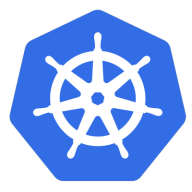

Find out what your peers are saying about Red Hat, Amazon Web Services (AWS), Kubernetes and others in Container Management.
| Product | Market Share (%) |
|---|---|
| Kubernetes | 6.9% |
| Portainer | 4.3% |
| Other | 88.8% |
| Company Size | Count |
|---|---|
| Small Business | 26 |
| Midsize Enterprise | 10 |
| Large Enterprise | 47 |
Kubernetes (K8s) is an open-source system for automating deployment, scaling, and management of containerized applications.
It groups containers that make up an application into logical units for easy management and discovery. Kubernetes builds upon 15 years of experience of running production workloads at Google, combined with best-of-breed ideas and practices from the community.
Portainer offers a robust platform for managing Docker environments, streamlining containerized application deployments and simplifying complex processes. It provides scalability and efficiency for IT operations.
Portainer facilitates comprehensive management of containerized environments, increasing operational efficiency. Known for its intuitive interface and broad functionality, Portainer minimizes time spent on mundane management tasks. Users benefit from resource optimization and improved visibility in container orchestration. As organizations continue to embrace cloud-native technologies, Portainer becomes a reliable choice for those looking to harness the full potential of Docker while maintaining easy control and oversight of container workloads.
What key features does Portainer offer?In industries like healthcare and finance, Portainer is deployed to manage sensitive data workflows, ensuring compliance and security. It's used in manufacturing for optimizing IoT integrations and in the tech industry to manage microservices efficiently, aligning with modern agile development practices.
We monitor all Container Management reviews to prevent fraudulent reviews and keep review quality high. We do not post reviews by company employees or direct competitors. We validate each review for authenticity via cross-reference with LinkedIn, and personal follow-up with the reviewer when necessary.